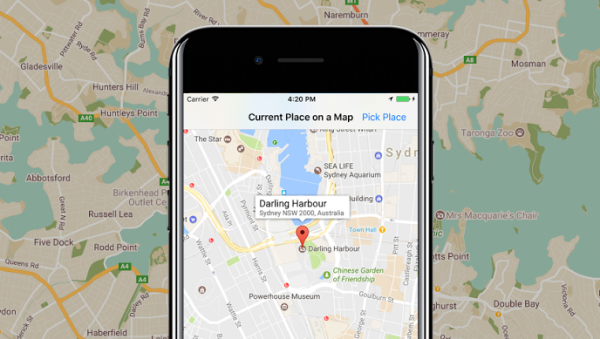Virtual Relationships: When Do You Know It’s the Real Thing
All of us have two lives nowadays: one in the real world and the other in cyberspace. This is evident as Facebook has some 2.14 billion users while instant messenger, WhatsApp has over a billion subscribers. We complete our routine tasks such as buying groceries, ordering meals and complex financial transactions online, merely by using a smart-phone.
This overlap between real-world existence and that in cyberspace also extends to our relationships. Nowadays, the phenomenon is called ‘Virtual Relationships’. Almost every human connected to Facebook, WhatsApp or other social media and instant messaging platforms has engaged in a virtual relationship at some point.
The popularity of Virtual Relationships

According to available data, online dating market in India is projected to grow to US$20 million by the year 2022. Currently, online dating market of India stands at US$13 million. The amount is a fraction of what Americans spend for online dating.
For example, a 2016 study by Pew Research Center reveals 27 percent of Americans between the age of 18 and 25 years have used online dating services. About 22 percent Americans of age between 25 and 34 years, 21 percent in the range of 35 to 44 years also met romantic partners through online dating websites. The figure drops considerably to 13 percent for Americans between ages 45 to 54 years and, 12 percent between 55 and 64 years, utilizing online dating services to meet a romantic partner.
Interestingly, about three percent Americans above 65 years also used online dating services to find partners. In India too, you can avail the service through online dating websites and apps. But similar statistics for India are not available since online dating in this country is a very discreet business. Generally, websites offering online dating do not reveal figures for various reasons.
Is It Real?
Online dating services charge US$40 and upward for memberships in India. Interestingly, this amount is the same as in the US and elsewhere in the world. Considering a large number of Americans that patronize online dating services and pay the fee, we can safely conclude that virtual relationships do work and are on rising.
Not only in India and US but worldwide. Online dating is very popular in permissive cultures of Scandinavia and Far East Asia too. Online dating services are making a mark around the world. Indications are, they are here to stay for rather long innings.
But meeting a romantic partner does not end by finding someone through online dating websites, Facebook, Twitter, WhatsApp, LinkedIn or other platforms.
A person searching for a partner has to know whether the relationship is worthwhile. Also, we need to ensure that personal details and information does not fall into the hands of scammers and criminals.
This is where it is important to know whether a virtual relationship is a real thing or not. Here are five signs that will let you know when your virtual relationship is the real thing.
Controlled Curiosity
A genuine virtual relationship can be distinguished from a fake one by knowing the level of curiosity of a partner. Anyone truly interested in forming a virtual relationship will be guarded while asking personal questions. In stark contrast, fakes will want to gather as much information they can within a short time.

Further, a real virtual partner will be honest about disclosing their personal details. But they will part with the info only when asked. Fakes usually indulge in information overload: they will smother you-virtually- with tall, inflated claims about themselves- without being asked- in a bid to attract quick attention.
Invitation to Instant Messaging
You will be invited to Instant Messengers (IMs) by both- genuine virtual partners and impostors. And there will be tell-tale signs. A genuine partner looking for a virtual relationship will invite you IMs like WhatsApp by offering you their connected mobile number. This is because mobile numbers are easy to trace and credentials of the user can be verified. Fakes will be happy to chat with you on other IMs like Facebook Messenger.

You can know it is the real thing when your virtual relationship partner begins communicating frequently through WhatsApp or other IMs that require verifiable mobile numbers. They will send you greeting messages, share innocuous jokes and other interesting content. Fakes will send very glamorous pictures of themselves, lewd image and vulgar jokes. Their sense of general knowledge will be poor and reflect on the content.
Email Exchanges
The third step towards finding whether your virtual relationship is a real thing is through emails. A mere glance at the email ID will prove whether the person is genuine. Those with good intent will have emails that reflect or resemble their real-world identity. Most sincere one may part with their office or business email ID.

You know it’s the real thing when your virtual relationship partner invites you to exchange emails. This means the person values your time and privacy. Instead of demanding quick answers, the partner is giving you time to choose words and response. That they are in no hurry and would like you to feel comfortable with the level of information you part.
Request for Address
A genuine virtual partner will never rush you into parting with work or residential address. They will try and get your address tacitly. It does not imply they mean harm or evil. The reason for getting your mailing address tacitly is for surprising you. In contrast, fakes will unabashedly demand your address and other contact details.

Generally, a genuine partner will use your mailing address to send you gifts from online stores like Amazon or a bouquet of flowers, box of chocolates or something you might appreciate. They will unleash the power of the Internet to impress you without being overly extravagant. And if the partner cannot afford to send gifts online, they may mail you something unique from their area or simply send a greeting card.
Facebook Profile
Provided you both have a Facebook profile, a genuine partner will never make efforts to hide any element of their life such as place of residence, employment, family details, groups, hobbies, and likes. Occasionally, you might get invited to a group where the virtual relationship partner is a member. A genuine virtual relationship partner will also ‘like’ your posts, regardless of their relevance and even if they are in a language they do not know.

Fakes will exert extra efforts to ensure their Facebook profile is appealing. This includes providing bogus information about employment, place of residence and family details. A fake partner’s profile will generally carry too many selfies depicting them in glamorous postures at glitzy places. Their posting pattern will change: you will increasingly see posts that are specifically targeted at you rather than for all other connected friends.
Other Ways to Know Real or Not
There are countless other ways to know whether your virtual relationship is the real thing. For example, a genuine one will respond to your IM messages almost instantly, provided they are not sent at an odd hour.
The late response will usually carry an apology. Another is through phone calls: a genuine virtual relationship partner will be coy on phone, often at loss for words in the initial days. Fakes will be rather boisterous on phones and IM.
Generally, you can tell whether a virtual relationship is real or not by paying close attention to a person’s online behavior. Fakes will proliferate themselves to your circle of Facebook friends quite rapidly. Genuine ones will not as much send a friend request in your circle. A fake can pressurize you into adding them in the ‘Relationship’ status- something that genuine ones will assiduously avoid.
One more way to find whether a virtual relationship is a real thing is by checking on the person’s profile on the online dating website. Renewed membership means the person is unsure about you or is looking for casual relationships. Changes in the profile, including display picture also indicate the same or worse- the person could be a fake.
In Conclusion
Online dating can help you find the real thing. Long distance relationships are nothing new: they existed since ancient times when lovers used pigeon mail or had men or women discreetly deliver messages to partners.
Industrialization saw the advent of pen-friends, where people from two distant places communicated by mail. In today’s world, the forging relationships have shifted to cyberspace because of ease of use and speed. Hence, knowing whether it is the real stuff is imperative.





